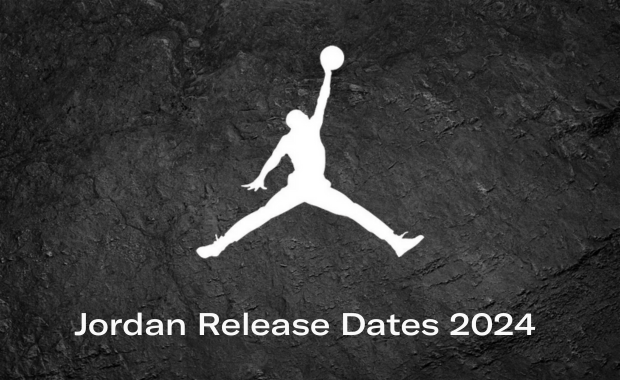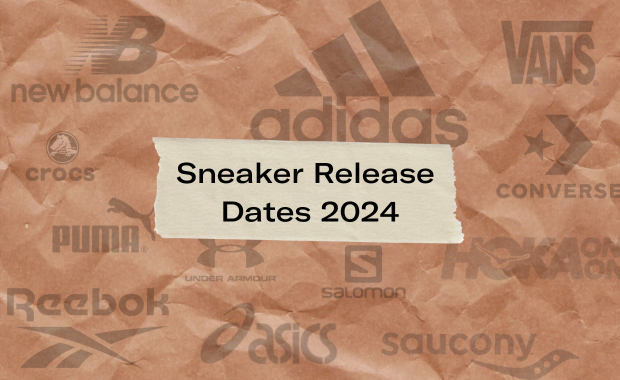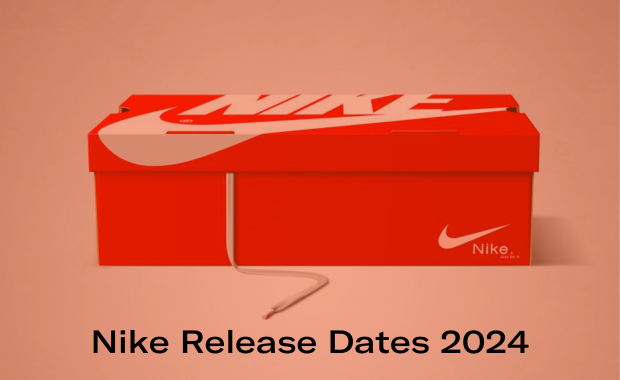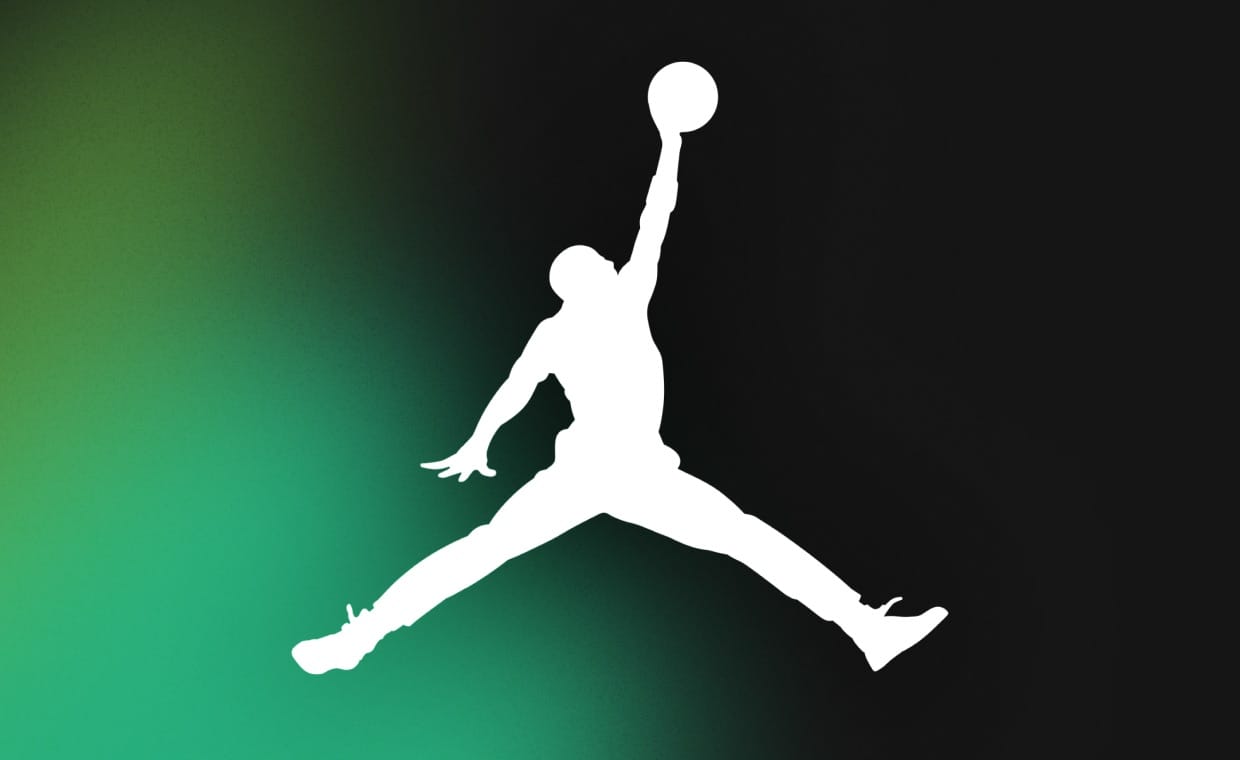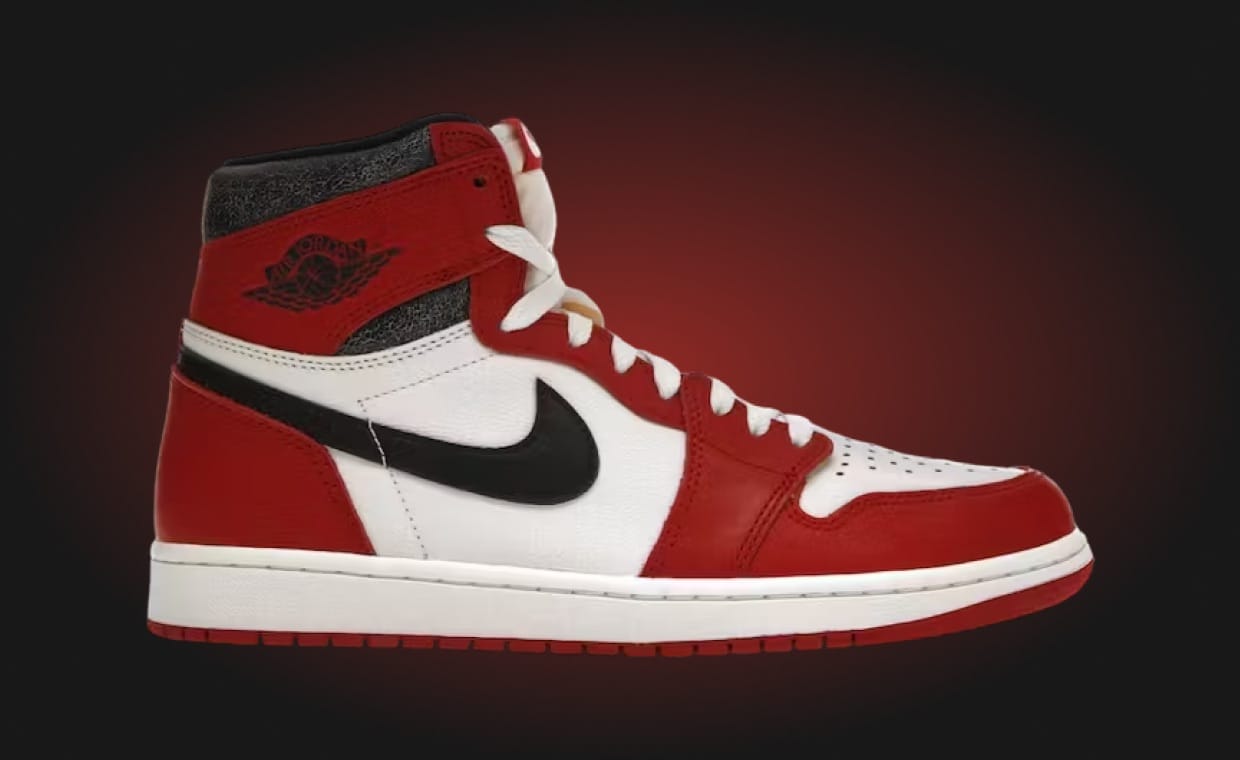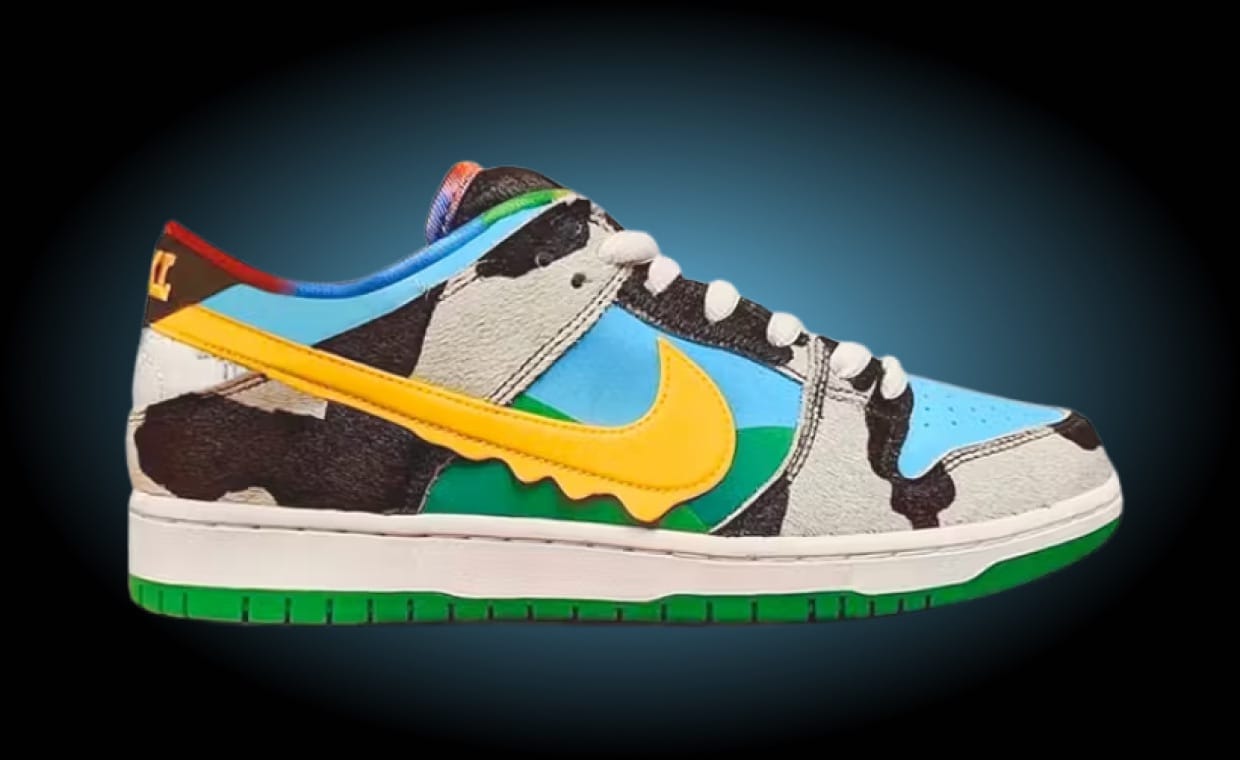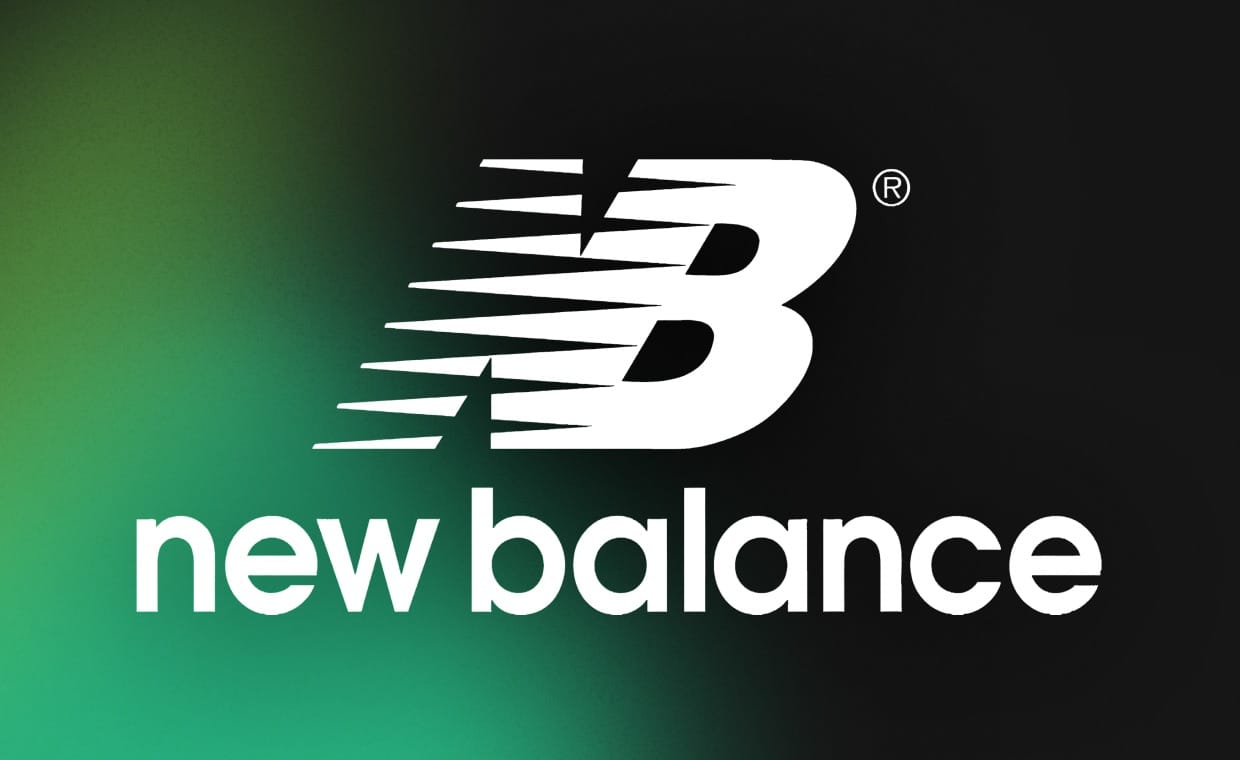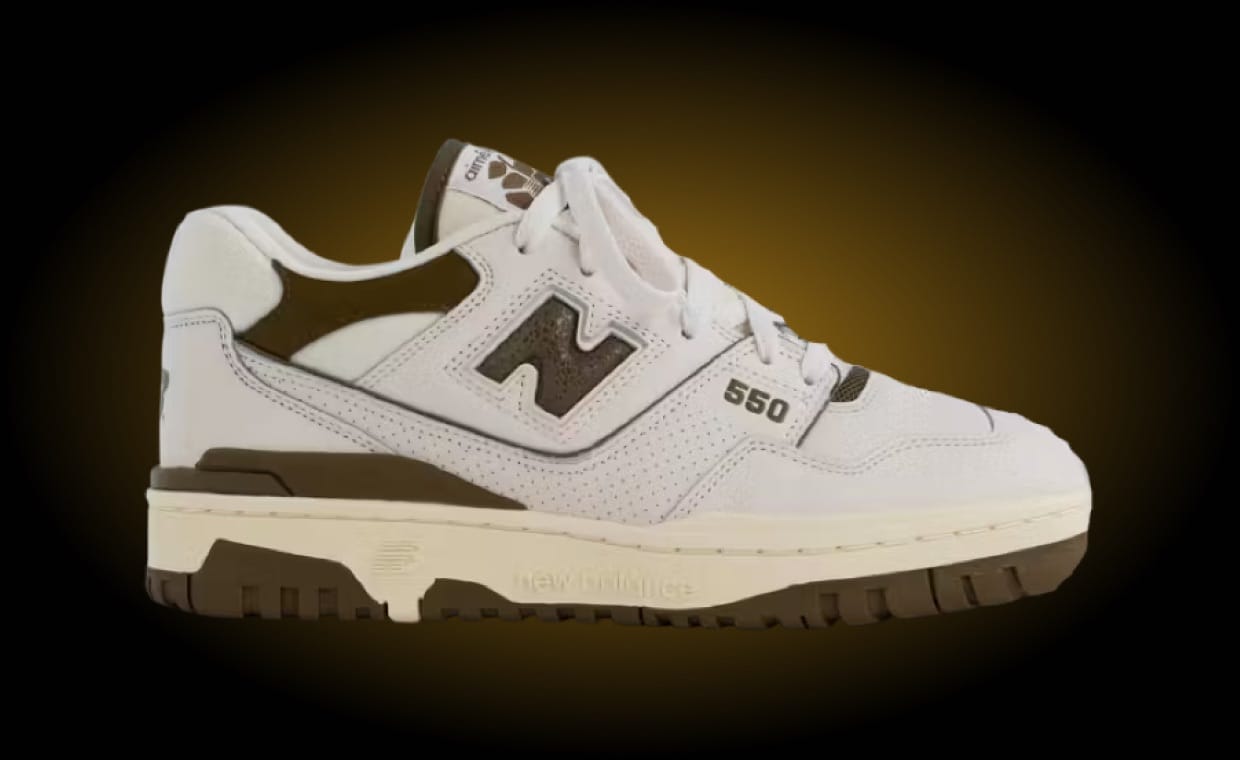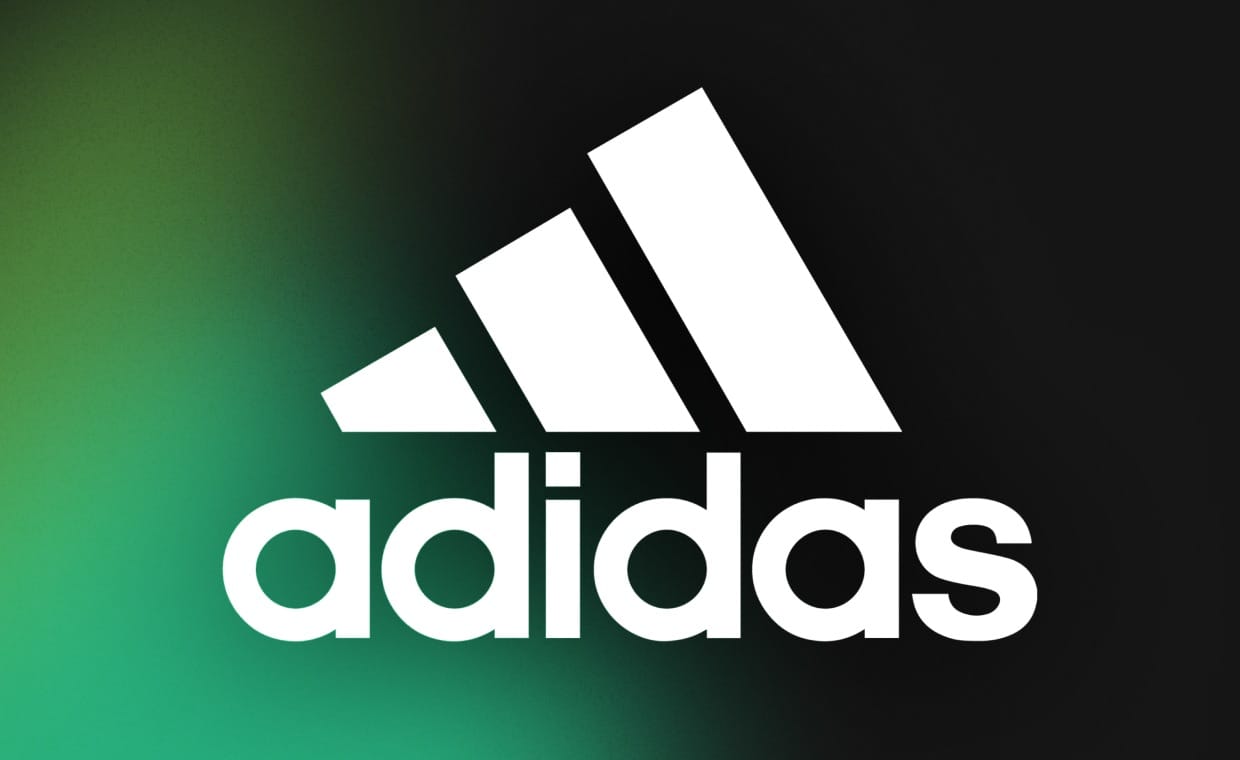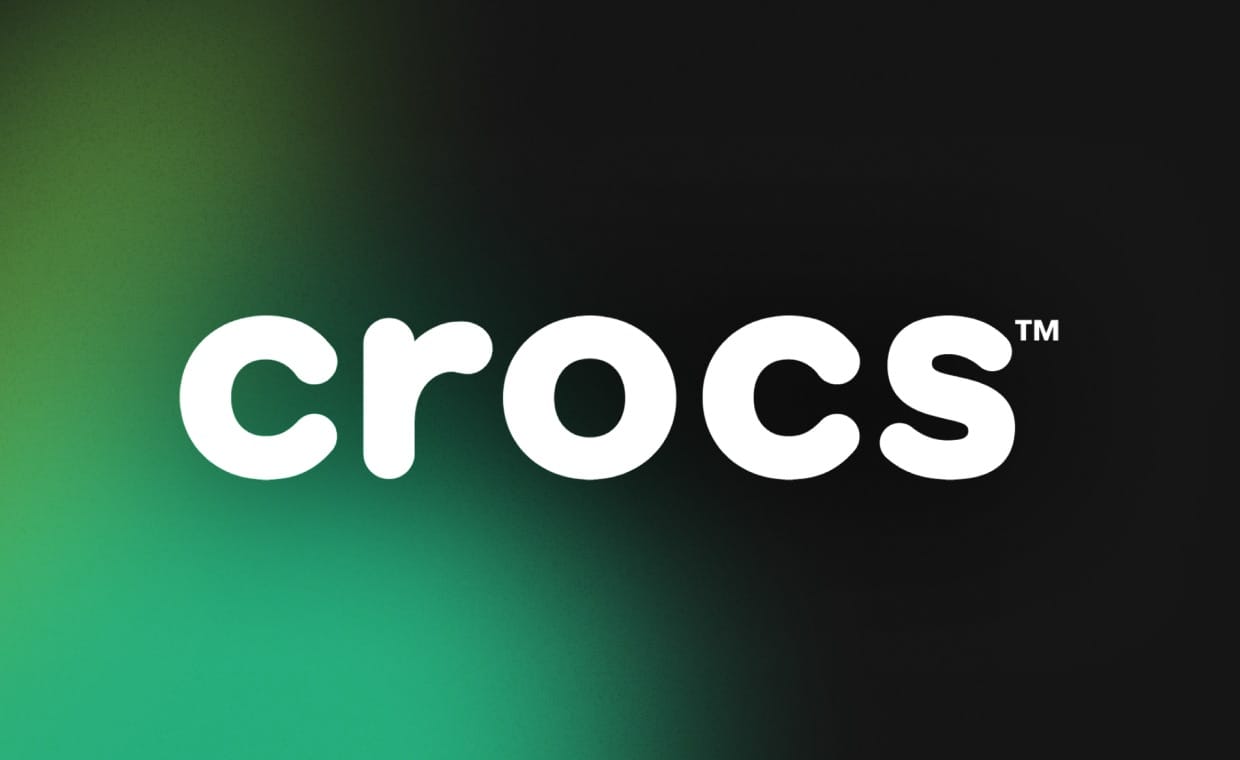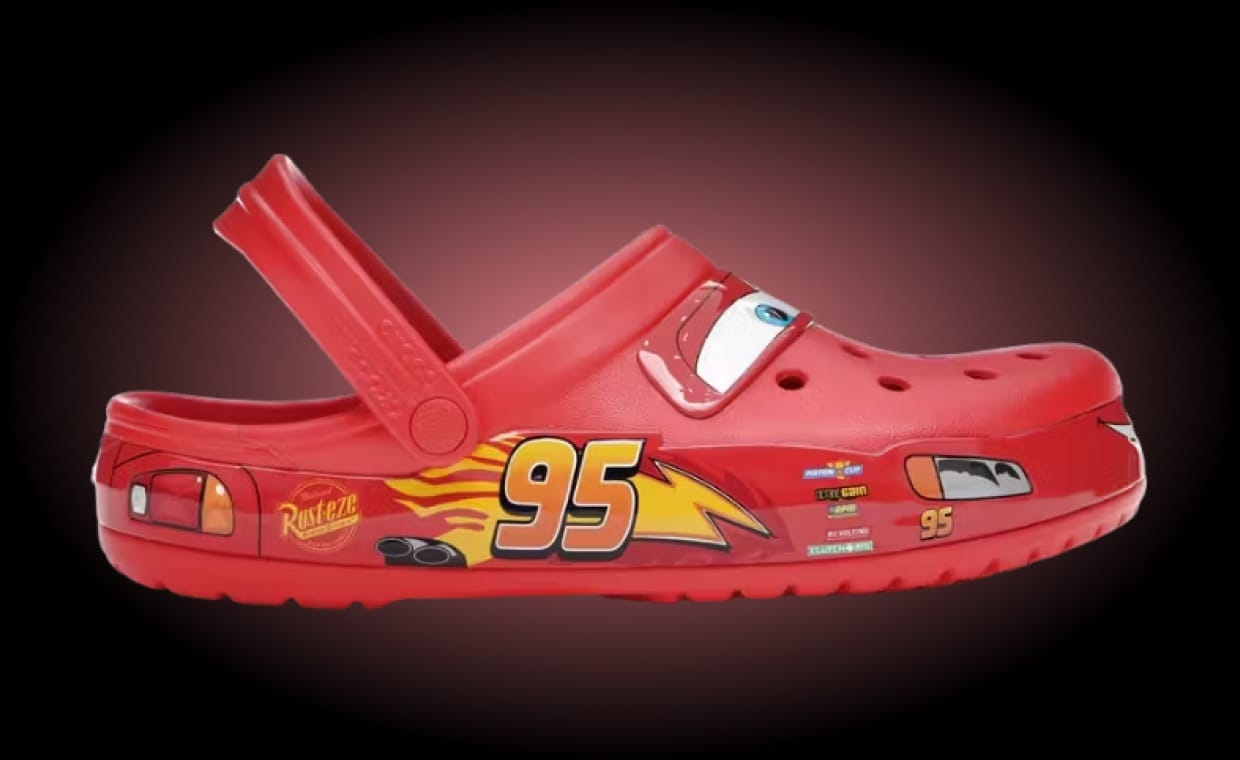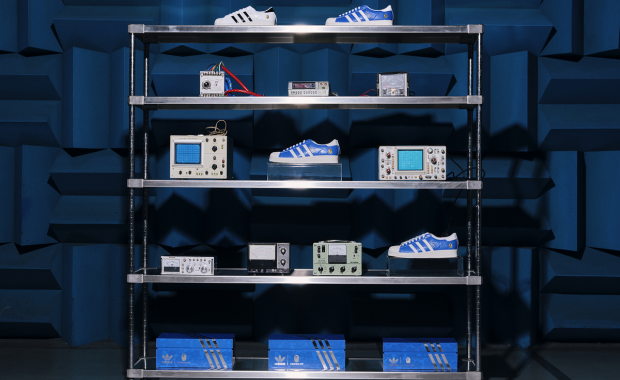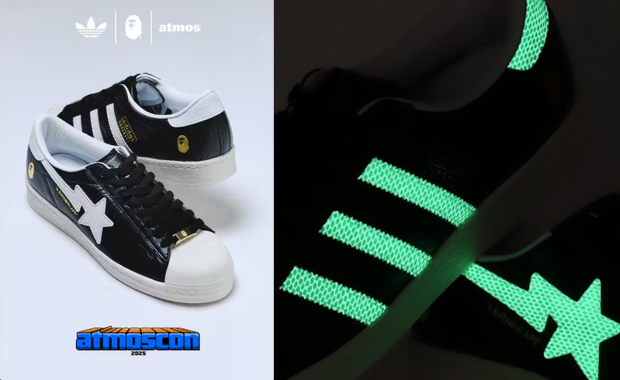Nike and BAPE Settle Trademark Infringement Lawsuit
Updated on •Published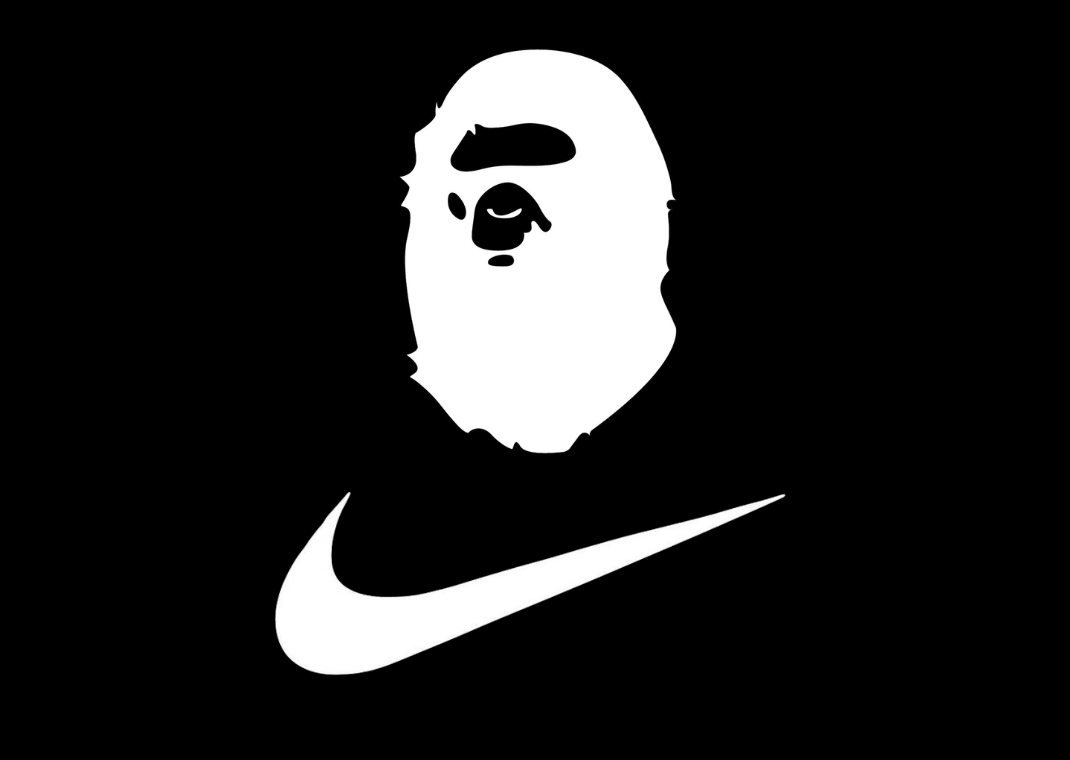
UPDATE: Nike and BAPE have settled their case, according to Brendan Dunne. Nike issued a statement regarding the settlement, stating,
"Nike and USAPE have resolved the lawsuit related to Nike's Air Jordan 1, Air Force 1, and Dunk trade dress and USAPE's BAPE STA, COURT STA, and SK8 STA footwear products. The lawsuit has been resolved through an amicable resolution. As part of the resolution, USAPE has agreed to discontinue the BAPE STA Mid, COURT STA, and COURT STA High footwear products, and has further agreed to modify the design of the BAPE STA and SK8 STA footwear products."
This news comes about two months following the court's decision to deny BAPE's motion to dismiss. The original article continues below.
Nike has been on a hot streak lately in regards to taking up legal action against those it believes are infringing upon its trademarked designs. So far, we’ve seen various independent footwear manufacturers like Kool KIY, Omi In A Hellcat, John Geiger, and more being taken to court with many putting into question, “why hasn’t Nike sued BAPE over their footwear designs?” Well, that day has finally come after decades of releasing the AF1-like Bape Sta and introducing new models, like the SK8 STA and COURT STA, each of which resemble Nike products. Nike has officially filed a lawsuit against A Bathing Ape.
Why Did It Take So Long For Nike To Sue BAPE
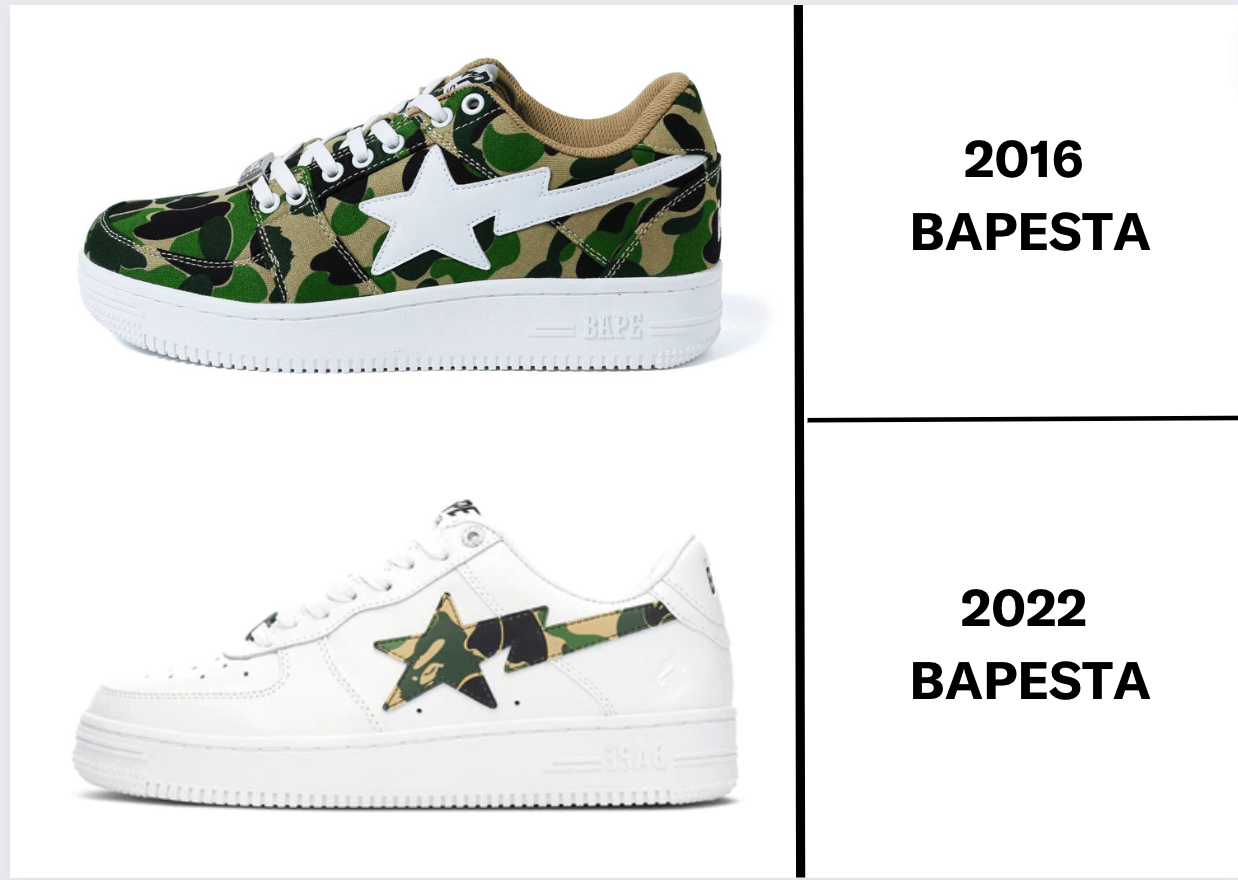
BAPE began its endeavors in the footwear world when it originally introduced the BAPE STA silhouette in 2000, while the brand was still a fledgling streetwear label out in Japan. As its popularity increased, BAPE began to have a larger presence in the US market and formally brought the BAPE STA stateside in 2005. However, they weren’t seen as a threat by Nike at the time. The suit filed on Wednesday states that “BAPE’s sale of infringing footwear in the United States was de minimis and inconsistent.” One analogy used in the filings likens BAPE’s infringement to “the famous Whac-A-Mole arcade game,” continuing by stating that products weren’t readily available in the US market until 2021. This was the year the brand reintroduced the OG design of the BAPE STA that more resembles the AF1 as in 2016, the BAPE STA underwent a redesign that less resembled Nike’s AF1. This redesign changed some key details, like the eyelets and heel overlay, that when looked at, may somewhat resemble the AF1. However, the original design coming back is what truly sparked Nike to seek legal recourse over trademark infringement.
Was BAPE Warned?
Based on Nike’s court filing, BAPE was warned of its infringing designs on two separate occasions. The first of which was said to have taken place in 2009 when Nike met with BAPE to discuss “BAPE’s pirating of Nike’s iconic Air Force 1 design and to protect Nike’s intellectual property right.” Apparently BAPE got the message. In the span of six years, Nigo stepped down as CEO, BAPE closed all but one of its U.S. brick-and-mortar locations and retooled the BAPE STA to look less like an Air Force 1.
According to Nike, starting in 2021, BAPE began ramping up its production of infringing models in 2021. The increased production and collaborations with the likes of JJJJound prompted Nike to send a cease and desist letter on August 24, 2022. “Despite being on notice of these allegations, BAPE continues to promote, sell, and distribute its Infringing Products in dozens of colorways and through collaborations with multiple third-parties.”
Reading between the lines, it seems likely that Nike didn’t have much communication with BAPE back in 2009, or at all probably, considering the only mention of the meeting is that it occurred. This leads us to believe the two did not have a signed agreement in 2009. If this were the case, it would have been referenced in the Complaint. A short conversation between Nike and BAPE through email is a possibility if the two sides' lawyers did not have a formal meeting. If that were the case and even if it isn't, and it is exactly as Nike suggests, this still is a lot of time and BAPE's brand awareness to consumers has gotten stronger.
What is Nike suing BAPE For?
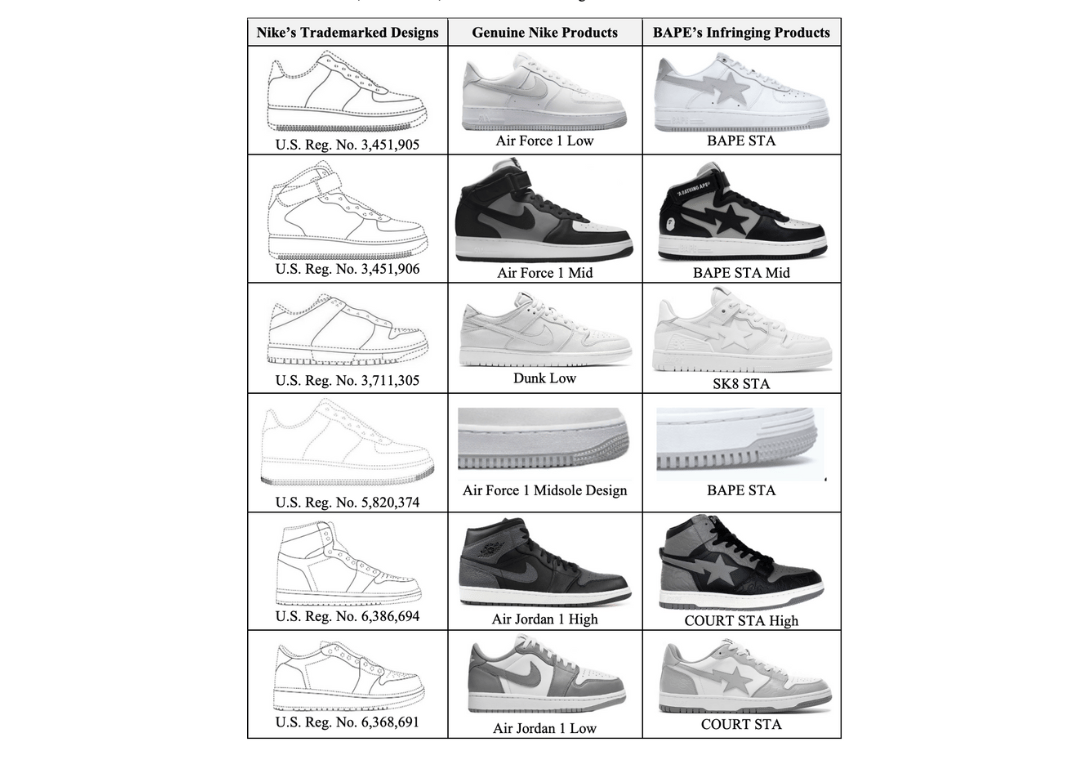
Much like the other cases Nike has brought forth to the court in recent memory, The Swoosh is alleging that BAPE “has created a likelihood of injury to Nike’s business reputation and goodwill, caused actual confusion and a likelihood of consumer confusion, mistake, and deception as to the source of origin or relationship of Nike’s products and infringing on its trademarks, diluting its brand name, and BAPE’s Infringing Products, and has otherwise competed unfairly by unlawfully trading on and using the Asserted Marks without Nike’s permission”
In the court filings, Nike introduces a wide range of exhibits to give backstory to their silhouettes (the Air Force 1, Dunk, and Air Jordan 1) that they believe are being copied by BAPE (The Bape Sta, SK8 STA, and COURT STA respectively)
Pulling more direct quotes from the filing, the three major takeaway points have been listed below:
- Trademark Infringement: “BAPE has wrongfully capitalized on Nike’s fame and its Asserted Marks by making, promoting, advertising, marketing, and selling in the United States footwear bearing the Asserted Marks and/or confusingly similar marks (the “Infringing Products”).”
- Dilution: “BAPE’s use of the Asserted Marks and/or confusingly similar marks on the Infringing Products that are substantially similar to the Asserted Marks is likely to dilute the Asserted Marks at least by eroding the public’s identification of the Asserted Marks with Nike and by lessening the capacity of the Asserted Marks to identify and distinguish Nike footwear products.”
- Unfair competition: “BAPE’s unauthorized use of the Asserted Marks and/or confusingly similar marks constitutes a false designation of origin that is likely to cause consumer confusion, mistake, or deception as to the origin, sponsorship, or approval of BAPE and/or BAPE’s Infringing Products by creating the false and misleading impression that BAPE’s Infringing Products are manufactured by, authorized by, or otherwise associated with Nike.”
Zak Kurtz of Sneaker & Streetwear Legal Services, a law firm specializing in sneakers and streetwear, helped translate these legal terms into plain English below,
“Trademark infringement is the unauthorized use of a trademark on or in connection with goods and/or services in a manner that is likely to cause confusion, deception, or mistake about the source of the goods and/or services. Here, it is based on the trade dress registrations for each of the Nike silhouettes listed (AJ1, AF1, Dunk). Essentially, Nike is alleging that BAPE's shoes look so similar to Nike’s shoes that consumers are confused about who made them. They think that the BAPES are really Nike’s or that it's somehow affiliated, approved by, or done in collaboration with Nike. Trademark law is based on confusion. Because BAPE is a huge, world-renowned brand, I believe that consumer confusion would be less here and the trademark infringement claim might be harder for Nike to prove. BAPE will also have the ability to use other applicable legal defenses. Some of which include the length of time it took for Nike to bring a lawsuit while being aware of Bape’s “infringing products.”
Dilution laws apply to brands that are “famous” and so Nike has to prove it is famous in the lawsuit. That's why they always tell a long history of each silhouette and how it became popular. Dilution essentially claims that this less-known brand (BAPE) is making similar goods as Nike and as such, is tarnishing or lowering the perception of legitimate Nike trademarks/ products.
Unfair competition laws prohibit false advertising and illegal business practices. Unfair competition claims come with consumer confusion and go hand-in-hand with the other claims in federal trademark infringement lawsuits.”
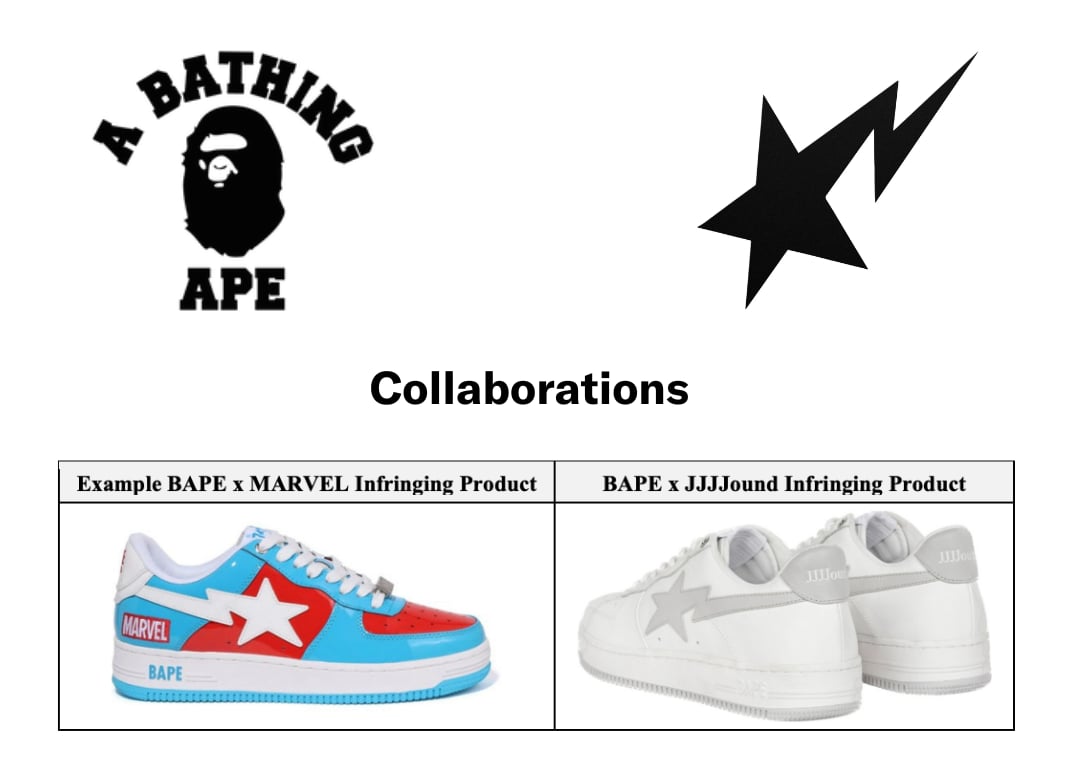
What Does Nike Want
At the end of the filing, Nike asserts 12 “prayers for relief,” describing what they hope to achieve from this lawsuit, covering a wide range of requested demands, including the destruction of any and all shoes, apparel, and more that bears Nike’s Asserted Marks.
Standard claims that are found in many cases include the ceasing of all trademark infringement, dilution, and unfair practices, setting a precedent that Nike owns the Asserted Marks (the trade dress and more encompassing the aforementioned footwear models), and a slew of damages that the defendant (BAPE) should pay for. In this particular suit, Nike is looking for the previously mentioned reliefs and has set forth 6 of the 12 for damages to be paid by BAPE.
These are as follows: awarding damages according to proof at the time of trial, paying Nike for any and all profits earned through the “violation” of Nike’s rights, an award of three times the compensatory damages, statutory damages, punitive damages, and the cost of Nike’s legal team.
While these may be overreaching, Nike’s end goal here is likely to stop BAPE from selling products that they are claiming infringe on their trademarks and to legally set a precedent that they exclusively own the Asserted Marks as spelled out in the first three points of the twelve.
Almost all cases of similar nature brought to court by Nike in the past have ended in settlements. Not only is this likely due to the slow speed of court proceedings but there is always a possibility that if Nike were to lose the case they could lose their trademarks on the silhouettes highlighted in the documents.
Why This Matters
Nike’s relentless pursuit to protect its trademarks has spurred numerous lawsuits against sneaker customizers, designers, and manufacturers ranging from La La Land to Kool KIY. In almost all of these cases, the defendants have used BAPE products’ resemblance to existing Nike products as a means to justify their own use of Nike’s trade dress. After all, if BAPE could infringe without consequence, why couldn’t others?
The suit brought by Nike against BAPE now puts an end to that criticism and the outcome of this case could impact the future of what sneaker customizers and designers are able to do as it relates to products looking or resembling Nike silhouettes.
According to Zak Kurtz, "If both sides take this to trial, a ruling in favor of BAPE could give creatives and smaller brands more confidence in using Nike or other brands silhouettes or designs as “inspiration” to build off of and create “new silhouettes” or “new designs.” There is also a possibility that Nike's trademarks could get invalidated.
Will Nike Win Its Case Against BAPE?
In regards to the strength of Nike’s case, Zak Kurtz gave his insight into the case as it stands right now.
“This certainly isn't a slam dunk for Nike. BAPE has their side to tell and arguments that they will make. One of the first ones Nike will certainly have to deal with will be the obvious- the amount of time it took them to bring this lawsuit. The Complaint addresses that but will it hold up is another question…Trademark infringement cases also are about consumer confusion and the notoriety and awareness of BAPE's brand will also play a huge factor here.”
Given what we know, we anticipate that this case will likely end in a settlement, but that remains to be seen.
We’ll be sure to keep up with the proceedings of this massive trademark infringement case, so keep it locked to our Twitter and the Sole Retriever mobile app to stay updated on the latest info regarding the Nike vs BAPE lawsuit and more in the sneaker and streetwear world.
Summary
- Nike is suing BAPE for Trademark Infringement, Dilution, and Unfair Competition and the claims are similar to cases Nike has brought against other sneaker manufacturers, customizers, & brands
- Nike has waited to take legal action against BAPE due to the brand’s “inconsistent” presence in the United States and breaks in trademark infringement
- BAPE was warned of legal action back in 2009 when the two parties met, leading to the BAPE STA silhouette changing until it was reintroduced in its OG form in 2021
- Nike is seeking a wide range of damages from BAPE, however, their end goal is likely to prevent BAPE from selling their footwear silhouettes that resemble Nike products
- Defendants of other Nike infringement cases have relied on the fact that BAPE has been untouched by Nike for years
- The proceedings for this case will likely take years and will likely end in a settlement

Sneakerhead from South Florida who turned his passion into a career. Concerts, music, trying new restaurants, and catching the latest movies are some of the things I enjoy when not writing for Sole Retriever. Email: nick@soleretriever.com
